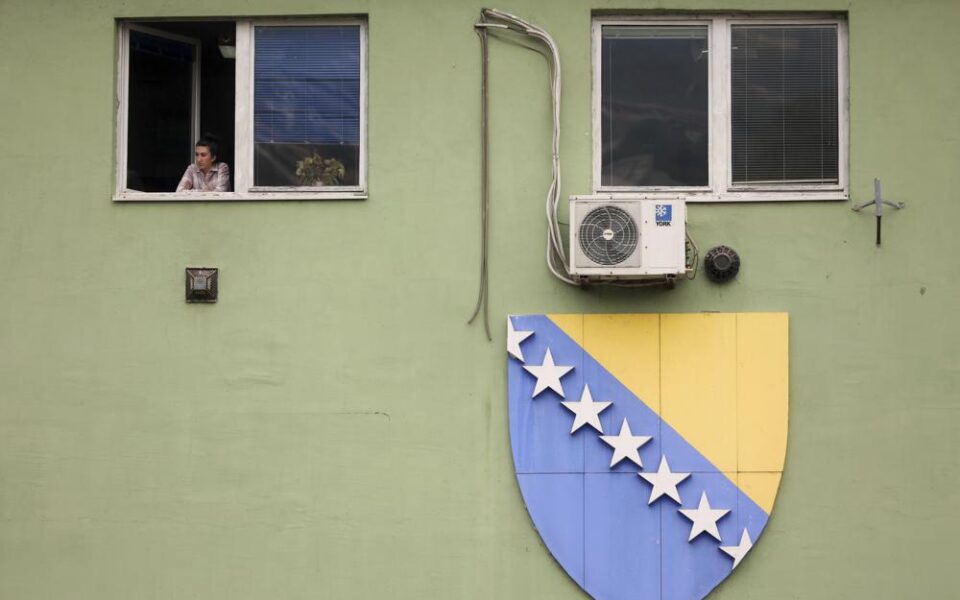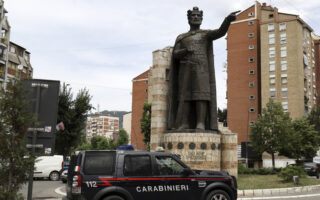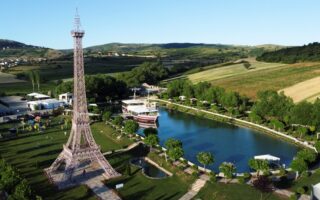EU Commission recommends Bosnia become candidate member

Bosnia-Herzegovina moved a small step closer to the European Union on Wednesday with the EU’s executive advising member states to grant it candidate member status despite continuing criticism of the way the Balkan nation is run.
The advice had been hotly anticipated in ethnically-divided Bosnia, which is lagging several other Balkan nations in being granted candidate status to become a member of the prosperous European club of 27 nations. For the EU itself, holding out the prospect of membership is a powerful instrument in the Balkans, where Russia, and China, are vying for more geopolitical clout.
EU Enlargement Commissioner Oliver Varhelyi told a European Parliament committee during the presentation of the annual enlargement report that the executive “recommends that candidate status be granted” by the member states, pending a slew of commitments for fundamental reform.
Bosnia’s foreign minister welcomed the decision, describing it as “historic.”
“This sends a strong message to the citizens [of Bosnia], one we have been hoping to get even earlier, that our future is as a member of the [EU] family,” Bisera Turkovic said on Twitter.
The recommendation comes more than 6 years after Bosnia formally applied to join the EU and nearly three decades since it emerged from a more than 3½-year-long interethnic war, part of the breakup of Yugoslavia, that left more than 100,000 dead.
The Commission can only advise which nations should become EU candidates, and all member states must agree unanimously on such a step. Varhelyi said he hoped the member states would make a quick move, possibly as early as December, since the situation in the region spurred by Russia’s war in Ukraine, made speed essential.
Still, once a country becomes a candidate, it can still take years, sometimes many years, before membership to the club becomes a reality.
Varhelyi warned Bosnian political leaders to move swiftly on badly-needed reforms.
“On our side, we made now a leap, a leap of faith,” he said. “Now the leadership must be there to deliver.” He said to become a candidate the Bosnian leaders needed reforms on issues ranging from the judiciary, to battling corruption and pushing through constitutional and electoral changes. Little progress on those issues has been made in recent years.
While Bosnia has professed its desire to join the EU since 2003, its bickering ethnic leaders have so far proven unwilling to put aside differences and implement necessary reforms. In fact, Bosnia recently found itself in the throes of its biggest political crisis since the end of the 1992-95 war, with the staunchly pro-Russian Bosnian Serb leader, Milorad Dodik, increasingly threatening to separate Bosnia’s Serb-run part from the rest of the country.
The Commission made several non-encouraging assessments in many sectors, outlining limited or no progress in reforms of public administration, the judiciary and the fight against corruption and organized crime. To be a candidate, a nation does not have to meet all criteria, but must show a commitment to do so.
Several Balkan countries and Turkey have been waiting around two decades to join and sometimes progress has been held up by objections from single EU member country.
Ankara applied for membership in 1987, received candidate status in 1999, and had to wait until 2005 to start talks for actual entry. It is still extremely far from membership. [AP]





